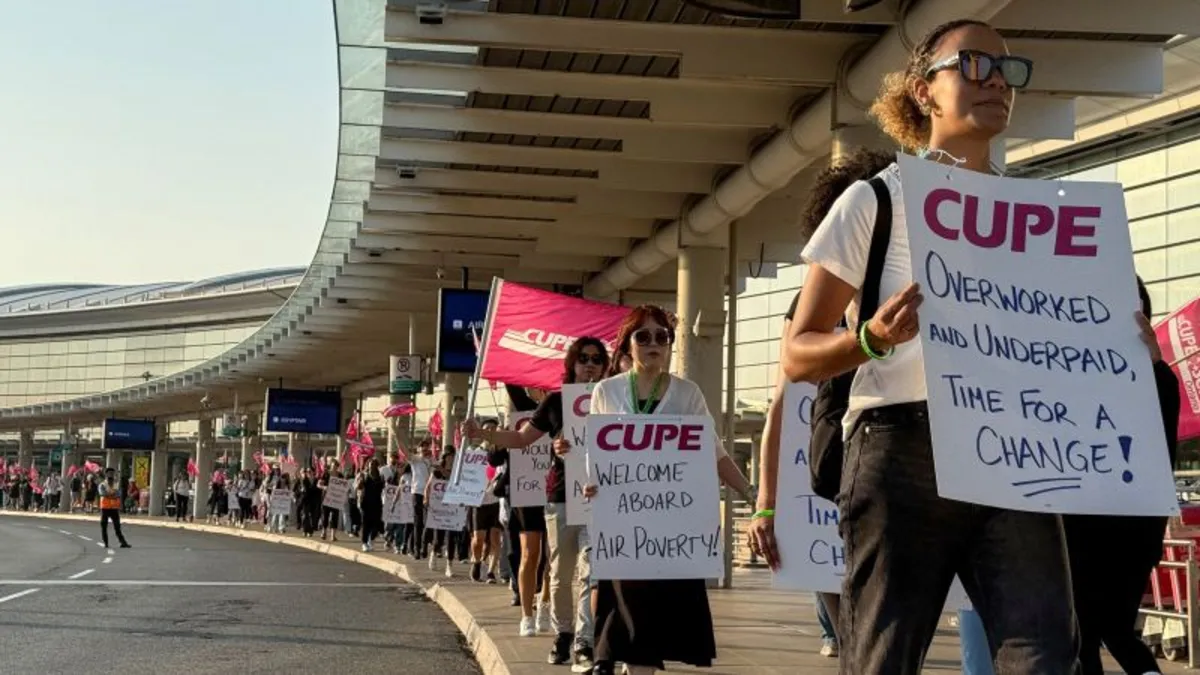
Over 10,000 Air Canada flight attendants are set to continue their strike, defying back-to-work orders issued by the Canadian government. The Air Canada component of the Canadian Union of Public Employees (CUPE) confirmed this decision on Sunday, emphasizing that members should remain on strike and refrain from contacting their employer during this period.
In a recent committee update, the union stated, “At this time, you are still on Strike and Locked out! Please remember while we are locked out, there is no obligation to be in contact with the employer, no responsibility to check Globe or your work email, or to contact them for reassignment or reserve duties.” This message highlights the union's commitment to advocating for the rights of flight attendants amidst ongoing labor disputes.
The flight attendants’ decision to maintain their strike comes in direct opposition to the intervention of Canadian Jobs Minister Patty Hajdu. On Saturday, Hajdu instructed the Canadian Labor Relations Board (CLRB) to mandate that Air Canada and its employees “resume and continue their operations and duties in order to secure industrial peace and protect the interests of Canada, Canadians, and the economy.”
Air Canada had previously requested governmental intervention, utilizing Section 107 of the Canada Labor Code, which allows the minister to direct an arbitrator to address disputes between employers and employees. This step was taken as the airline aimed to restore normal operations after the strike commenced.
Members of the Air Canada component of CUPE demonstrated overwhelming support for the strike, with a staggering 99.7% voting in favor last week. The strike officially began around 1 a.m. ET on Saturday, with flight attendants advocating for significant wage increases and paid compensation for periods when planes are grounded.
Wesley Lesosky, president of CUPE’s Air Canada component, criticized the government’s actions, stating that they were “violating our Charter rights to take job action.” He accused the government of catering to Air Canada’s demands, which he claims leads to “hours and hours of unpaid labor from underpaid flight attendants” while the airline continues to generate substantial profits and provide high compensation to its executives.
In response to the ongoing labor dispute, Air Canada has stated that it offered a 38% increase in total compensation over four years, which includes an hourly raise of 12% to 16% in the first year. Despite these proposals, the union remains firm in its demands, insisting that the offer does not adequately address the needs of flight attendants.
Jobs Minister Hajdu has refuted claims that the Canadian government is anti-union, asserting that both Air Canada and its union workers are “at an impasse” and that they require assistance in arbitrating the remaining issues. The situation continues to evolve as both sides seek a resolution to the ongoing labor conflict.
This strike not only impacts the flight attendants but also poses challenges for travelers and the broader Canadian economy. As the situation develops, all eyes remain on Air Canada and CUPE as they navigate these complex labor relations.